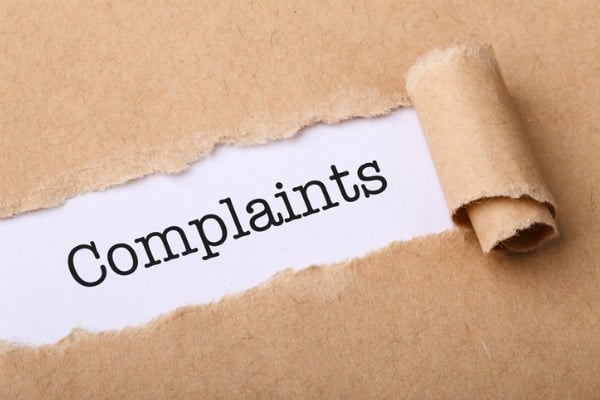We know that complaints have risen in Q3…so, why do Patients complain?
The total number of written complaints to GP Practices in 2018-19 was 77,284 — with most complaints relating to communications, then staff attitude/behaviour/values, and then clinical treatment.
Most Patients complain because they are unhappy or dissatisfied about someone or something and want to express their frustration or resentment.
There has been a significant increase in the number of complaints, both verbal and written, to GP Practices over the last few months, with most relating to the sudden and unprecedented changes since the pandemic to the way they would normally book an appointment, the reduction of non-urgent face-to-face consultations, and disliking or not confident using online services.
What Must Practices Do?
Organisations have a statutory responsibility to adhere to the 2009 Complaints Regulations. The Francis report, which was an Independent Inquiry into Mid Staffordshire NHS Foundation Trust, made recommendations that included the requirement for NHS organisations to have a more open and transparent complaints process, and that complaints information is required to inform Patient choice.
Practices must have a complaints procedure which informs Patients how their views can be heard. It should include information on how the complaints process works, and how positive or constructive feedback can be given. Practices must appoint a complaints manager and a ‘responsible person’ who must be, in the case of a partnership, a Partner. For a sole contractor, the responsible person must be that contractor, and for a company or other organisation, it should be a Director. The same person can be appointed to both roles, and both can delegate practical responsibilities.
What Should Practices Do?
Practices may be able to reduce the number of written complaints by:
- Having processes in place to resolve potential and verbal complaints before they escalate to written complaints
- Ensuring that trained and confident staff are available to discuss and resolve issues promptly
- Being open and honest about when things haven’t gone as well as they could have done and explaining why plus what has been learnt from informal feedback
However, complaints are unfortunately going to arise and, whilst dealing with a formal complaint can be challenging or even distressing for staff, it is important to manage them promptly, professionally, and most importantly learn from them.
Practices should consider having complaints as a standing agenda item at monthly staff meetings, to discuss themes and trends to identify specific areas for improvement. This demonstrates a well-led culture and it should also adopt the Parliamentary and Health Service Ombudsman’s (PHSO) Principles of Good Complaints Handling, which are:
- Getting it right
- Being customer focused
- Being open and accountable
- Acting fairly and proportionate
- Putting things right
- Seeking continuous improvement
New Complaint Standards Framework
The PHSO and its partners have worked to create a national set of complaint standards for the NHS, known as the Complaint Standards Framework (CSF), and this is currently out for public consultation. The PHSO held a live webinar to explore the new CSF and the positive impact it aims to have on the NHS complaints process. It is not prescriptive, and the framework will be voluntary. A model complaint handling process that people can use will also be provided alongside it.
A CSF is not a new idea. It already exists in ombudsman jurisdictions in Scotland, Wales, and Northern Ireland. It also exists on a non-statutory basis in higher education in England and Wales.
Ian Trenholm, Chief Executive of Care Quality Commission, said “The Complaint Standards Framework is all about creating an environment that promotes feedback in a constructive way; but delivers a continuous stream of learning to people delivering the services on the frontline who feel really valued, who walk towards the lessons and embrace them.”
There may be some reluctance by some GP surgeries to see the benefit of the CSF, so the PHSO will have to work hard at this, and one of the ways to do that they suggested would be to work with a number of progressive surgeries initially.
Complaints During the Pandemic
The PHSO paused their work on NHS complaints from 26 March 2020 to 1 July 2020 to help the NHS focus on tackling the coronavirus pandemic. However, they are now accepting new NHS complaints and progressing existing ones, but recognise that many resources are stretched and will keep this under review.
Top Tips
Tips for managing complaints:
1. Look at complaint themes and trends; and, whilst individual complaints will require an individual response, consider putting templates together to highlight how you are addressing the main causes of complaints and publicise it on your website or social media. Patients who feel informed and involved may be less likely to complain.
2. Review your wording. Whilst Practices must have a complaints process, consider advising Patients to let you know “How can we make things better?”. Many Patients don’t want to make a formal complaint, and some are concerned about the repercussions of doing so; therefore, this may feel a less confrontational way of them being able to voice their concerns.
3. Support your staff who deal with Patient complaints, particularly those on the front line (and this includes the Practice Manager), as it can be overwhelming and emotionally demanding at times. Ensure they have access to up-to-date complaints resources, and offer them the opportunity to decompress when necessary.
The QCS Complaints, Suggestions and Compliments Policy and Procedure provides information about the complaints process, and we have a new useful complaints register to make it easier to collate the data to submit to NHS Digital for the annual KO41b Primary Care (GP and Dental) Complaints Collection in 2021.
NOTE: The annual KO41b data for GP and Dental practices will not take place for 2019-20 and therefore will not need to be submitted this year.






